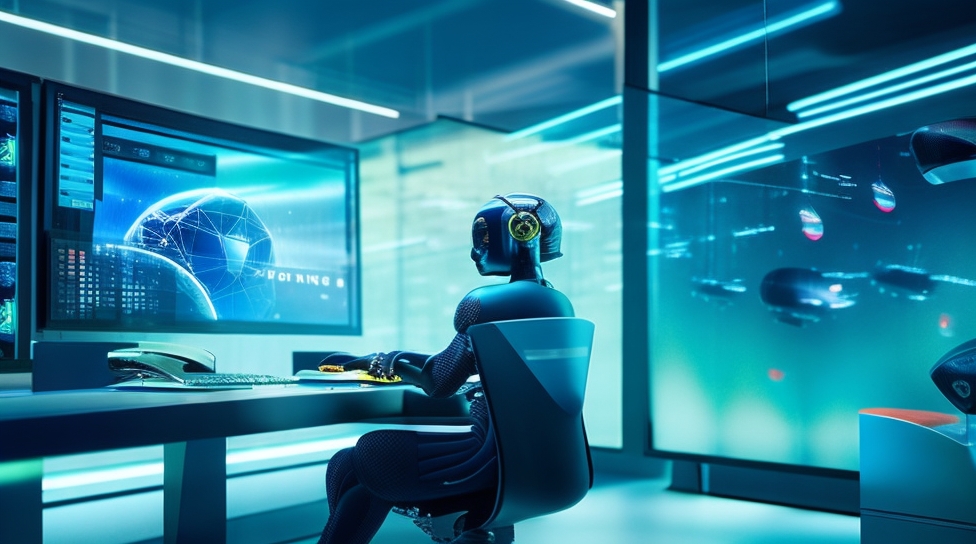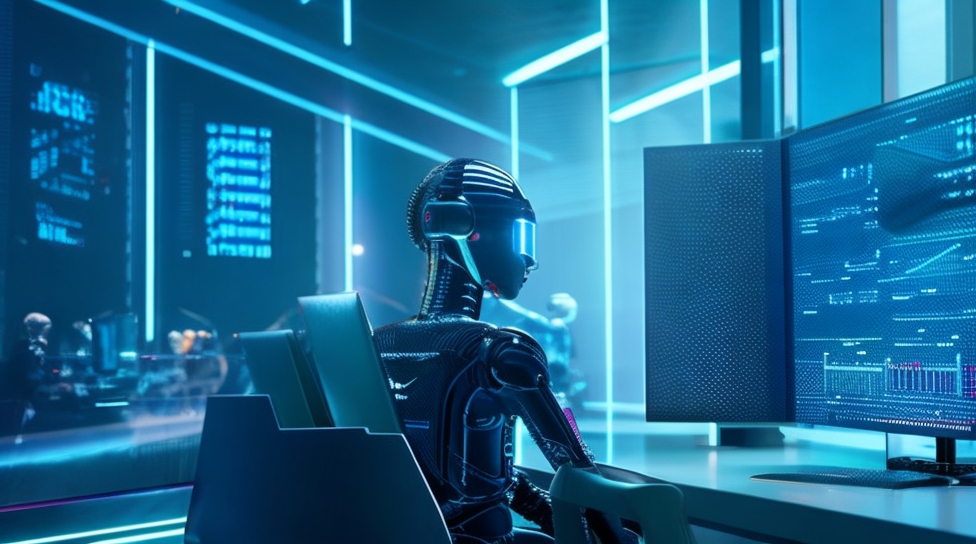AI Immersive Masonic Learning
Masonic learning has evolved significantly over the years, adapting to the changing needs of its members. Traditionally, education within the Masonic fraternity involved lectures, readings, and group discussions. However, with the rapid advancement of technology, there is a new frontier in Masonic education – AI immersive learning.
The Evolution of Masonic Learning
Masonic learning has come a long way since its inception. Initially, education within the fraternity focused on conveying knowledge through the spoken word, passed down from one generation to the next. As Freemasonry grew and adapted to modern times, printed materials and lectures became popular means of education.
In recent years, Masonic education has shifted towards more interactive and experiential learning. Freemasons are embracing new technologies to enhance their understanding of the craft and to engage with younger members who have grown up in a digital world.
The Role of Technology in Modern Masonic Education
Technology has played a crucial role in modern Masonic education. Access to the internet has made vast amounts of Masonic knowledge easily accessible to all members. Online forums and communities have created a virtual space for Freemasons to connect and exchange ideas.
Advancements in virtual reality (VR) and augmented reality (AR) have opened up new possibilities for immersive learning experiences. By blending the digital world with the real world, Freemasons can now delve into the rituals, history, and teachings of the craft in a way that was previously unimaginable.
The Promise of AI-Powered VR/AR in Masonic Teachings
Artificial Intelligence (AI) has emerged as a game-changing technology in various sectors, and Masonic education is no exception. AI-powered VR/AR applications have the potential to revolutionize the way Freemasons learn and interact with the craft.
By leveraging AI algorithms, these immersive technologies can create realistic, interactive, and personalized experiences for Freemasons. AI can analyze user data, preferences, and learning styles to adapt and present information in ways that resonate with individual learners. This personalized approach can significantly enhance the effectiveness of Masonic education.
Benefits of Immersive Learning for Freemasons
Immersive learning in Freemasonry offers a range of benefits for its members. Firstly, it provides an engaging and interactive learning experience that goes beyond traditional lectures and readings. Freemasons can now step into a virtual lodge where they can witness rituals, explore historical landmarks, and engage with key moments in Masonic history.
This immersive approach also enhances understanding and retention of Masonic teachings. By experiencing the rituals and concepts in a more immersive manner, Freemasons can develop a deeper understanding of their significance and symbolism.
Furthermore, these technologies provide a means for global connectivity among Freemasons. Virtual lodges and online collaborations allow members from different parts of the world to connect and learn from one another, enriching their Masonic experience.
The Transformative Power of AR/VR in Masonic Rituals
One of the most compelling applications of AI immersive learning in Freemasonry is the ability to bring ancient rituals to life. Through VR/AR, Freemasons can step into a virtual lodge and witness the rituals as if they were physically present. This immersive experience allows for a deeper understanding and appreciation of the symbolic actions and gestures performed during the ceremonies.
By interacting with virtual representations of the rituals, Freemasons can gain a better understanding of their significance, fostering a stronger connection to the teachings and values of the craft.
Enhancing Understanding and Participation in Rituals
VR/AR can also enhance the understanding and participation of Freemasons during rituals. By providing a digital environment where individuals can practice and familiarize themselves with the rituals, VR/AR technology removes the fear of making mistakes in front of others. This increased confidence can lead to more active participation and a deeper engagement with the rituals.
Furthermore, VR/AR can offer real-time guidance and feedback, helping Freemasons perfect their performance of the rituals. This interactive learning experience enables individuals to make adjustments and improvements to their ritualistic actions, resulting in a more meaningful and impactful performance.
Safety and Privacy Concerns in Virtual Rituals
As with any technological advancement, there are safety and privacy concerns associated with VR/AR in Masonic rituals. It is crucial to ensure that the virtual environments used for such purposes are secure and protected from unauthorized access.
Additionally, Freemasons must be mindful of the potential for misuse or misrepresentation of rituals in the virtual realm. The authenticity and integrity of the rituals should be preserved, and measures should be in place to prevent unauthorized modifications or adaptations.
Case Studies: Successful VR/AR Implementations in Rituals
Several Masonic organizations have embraced VR/AR technology to enhance their rituals with great success. For example, some lodges have implemented VR simulations that allow members to practice and refine their performance of the ritualistic ceremonies.
These VR simulations provide a safe and controlled environment for Freemasons to learn and perfect the subtle nuances of the rituals. The real-time feedback and guidance offered by the VR technology have resulted in improved performance and a deeper connection to the symbolic elements of the ceremonies.
By combining tradition with cutting-edge technology, these Masonic organizations have demonstrated the transformative power of AI immersive learning in ritualistic practices.
Interactive Exploration of Masonic Historical Events
One of the fascinating applications of AI immersive learning is the ability to embark on virtual tours of historic Masonic sites. Through VR/AR, Freemasons can explore iconic landmarks, such as Freemasons' Hall in London or the George Washington Masonic National Memorial in the United States, without leaving the comfort of their homes.
These virtual tours provide a unique opportunity to engage with Masonic history on a deeper level. Freemasons can walk through the halls, study the architecture, and learn about the historical significance of each location. This immersive experience enhances their understanding of the rich heritage and traditions of the craft.
Engaging with Key Moments in Masonic History
AI immersive learning allows Freemasons to engage with key moments in Masonic history in a truly interactive manner. Through VR/AR applications, they can witness historical events unfold and actively participate in the reenactment, creating a sense of connection and immersion like never before.
For example, Freemasons can virtually experience the formation of the United Grand Lodge of England in 1813 or the laying of the cornerstone of the Washington Monument in 1848. By being present in these pivotal moments, Freemasons can gain a deeper appreciation for the historical significance of the craft.
Learning from Past Grand Masters through AI Interactions
Imagine being able to learn directly from past Grand Masters of Freemasonry. AI immersive learning makes this possible by leveraging natural language processing and interactive AI systems. Freemasons can have virtual conversations with virtual representations of past Grand Masters, asking questions and seeking wisdom and guidance.
This innovative approach to education allows Freemasons to tap into the collective knowledge and experience of the craft's esteemed leaders. It fosters a sense of continuity and heritage, ensuring that the wisdom passed down through generations remains accessible to all.
The Future of Masonic History Preservation with VR/AR
VR/AR technology opens up new possibilities for the preservation and exploration of Masonic history. By creating virtual replicas of historic Masonic sites and artifacts, these technologies ensure that future generations can learn from and engage with the rich heritage of the craft.
Virtual archives can be created, allowing Freemasons to access rare manuscripts, historical documents, and artifacts with a simple gesture in the virtual world. This preservation of Masonic history ensures that the traditions and values of the craft continue to be passed down through the ages.
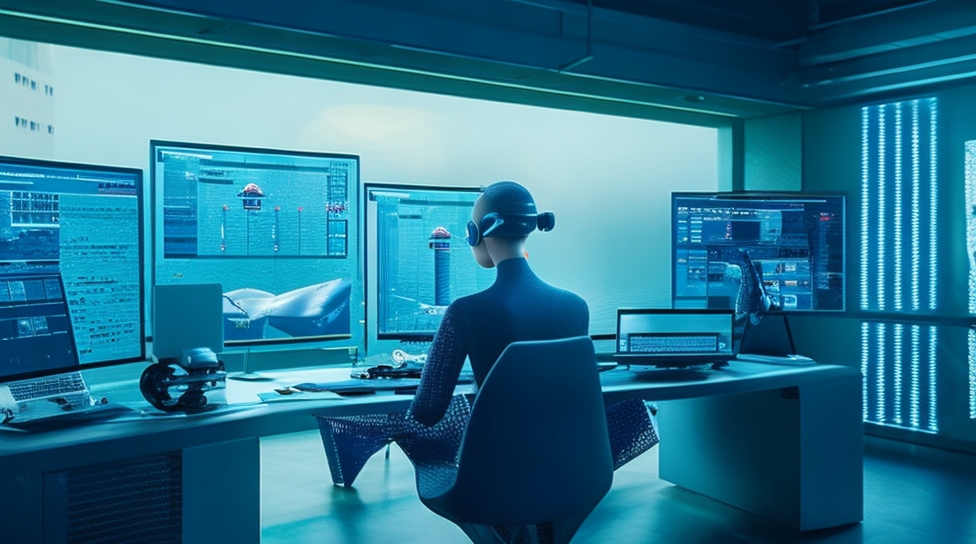
Deepening Understanding of Masonic Teachings with AI
One of the exciting developments in AI immersive learning is the gamification of Masonic education. Gamified approaches leverage game mechanics to make learning more enjoyable and engaging.
By incorporating elements such as rewards, challenges, and competition, Freemasons are motivated to actively participate and progress in their education. Gamified platforms encourage regular interaction and provide a sense of achievement, making the learning experience more enjoyable and effective.
Real-time Feedback and Enhanced Engagement
AI immersive learning provides real-time feedback and guidance, enhancing engagement and understanding of Masonic teachings. Interactive simulations allow Freemasons to practice their understanding of Masonic concepts and receive instant feedback on their performance.
This immediate feedback loop fosters a deeper level of understanding and enables individuals to correct any misconceptions or gaps in their knowledge. The personalized nature of the feedback ensures that Freemasons can progress at their own pace and focus on areas where they need improvement.
Bringing Abstract Masonic Concepts to Life
Masonic teachings often involve abstract concepts that can be challenging to grasp fully. AI immersive learning addresses this challenge by providing visual representations and interactive experiences that bring these concepts to life.
For example, complex geometrical symbols can be visualized in a virtual environment, allowing Freemasons to manipulate and explore their meanings. This hands-on approach to learning enables individuals to develop a deeper understanding of the symbolic language of Freemasonry.
Collaborative Learning: Connecting Freemasons Globally
One of the most significant advantages of AI immersive learning is its ability to connect Freemasons from all around the world. Through virtual lodges and online platforms, Freemasons can engage in collaborative learning experiences, sharing knowledge and insights with one another.
This global connectivity breaks down geographical barriers and allows Freemasons to learn from a diverse range of perspectives. The exchange of ideas and experiences enriches the Masonic education and strengthens the bonds of brotherhood within the fraternity.
Challenges and Opportunities in AI Immersive Masonic Learning
Implementing AI immersive learning in Masonic education requires an initial investment in technology and infrastructure. Lodges must consider the cost of acquiring VR/AR equipment, creating immersive content, and providing training to members. Budgetary considerations are essential to ensure a sustainable and long-term implementation of AI immersive learning.
However, the investment also presents an opportunity for lodges to differentiate themselves and attract younger members who are accustomed to technology-driven learning experiences. Embracing AI immersive learning can position the lodge as forward-thinking and innovative, appealing to the digital-native generation.
Ensuring Authenticity and Accuracy in Virtual Representations
When adopting VR/AR technology for Masonic education, it is crucial to ensure the authenticity and accuracy of the virtual representations. The rituals, landmarks, and historical events must be meticulously researched and recreated to preserve the integrity of the craft.
Freemasons must also be cautious of potential misinformation or misrepresentation of Masonic teachings within virtual environments. Quality control measures and robust content moderation policies should be in place to maintain the accuracy and authenticity of the educational content.
Potential Risks and Ethical Considerations
As with any application of technology, AI immersive learning in Freemasonry brings potential risks and ethical considerations. Privacy concerns must be addressed to protect the personal information of Freemasons involved in virtual learning experiences.
Moreover, the use of AI algorithms raises questions about data security and ownership. It is crucial to establish transparent policies and guidelines to ensure that the data collected during immersive learning sessions is used responsibly and for the benefit of the learners.
The Road Ahead: Continuous Improvement and Adaptation
AI immersive learning in Freemasonry is still in its early stages, and there is much room for continuous improvement and adaptation. As technology evolves, new opportunities for immersive learning experiences will arise, offering even more engaging and effective educational tools for Freemasons.
By embracing the transformative power of AI immersive learning and continually adapting to new advancements, Freemasonry can ensure the preservation of its traditions while appealing to the learners of the digital age. It is an exciting time for Masonic education, as the craft harnesses the potential of AI to create immersive learning experiences that will shape the future of the fraternity.
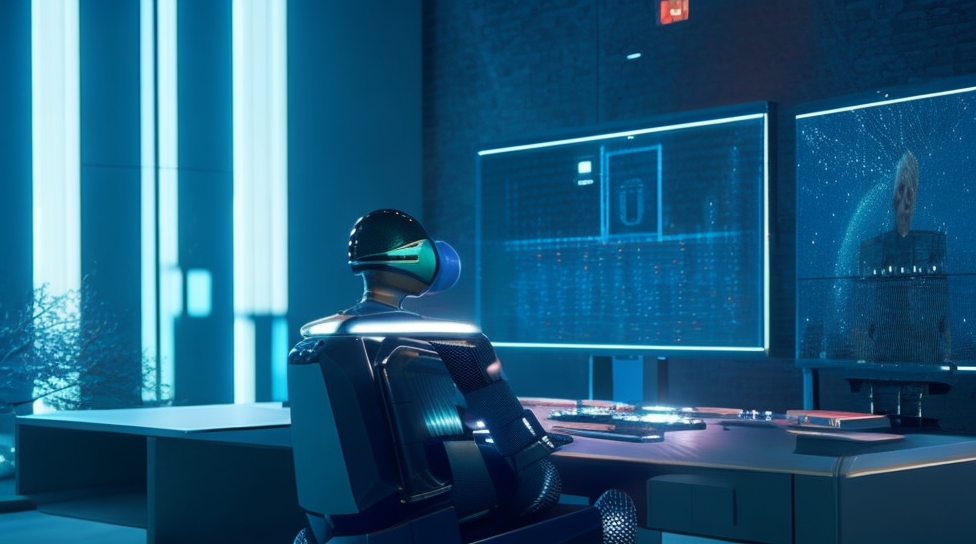
Freemasonry in the Age of AI and the Metaverse
The integration of AI technology in Freemasonry has the potential to impact the long-standing traditions of the craft. As AI immersive learning becomes more prevalent, there may be a shift in how rituals and ceremonies are conducted. AI algorithms could analyze the rituals and suggest enhancements or modifications while still adhering to the core principles and symbolism of Freemasonry.
AI's Role in Enhancing Freemasonic Ceremonies
Within the realm of AI immersive learning, technology can enhance the overall experience of Freemasonic ceremonies. AI algorithms can be leveraged to create audiovisual effects, projection mapping, and synchronized lighting to elevate the atmosphere and symbolism of the rituals. By blending technology with tradition, Freemasons can create more immersive and transformative experiences.
AI Algorithms and Adherence to Freemasonic Values
The introduction of AI algorithms in Freemasonry raises questions about their adherence to Freemasonic values. It is essential to ensure that the algorithms used in immersive learning align with the core values of the craft, such as brotherly love, charity, and truth. Careful consideration must be given to the development and implementation of AI algorithms to ensure they respect and reflect the principles of Freemasonry.
Emergence of the Metaverse in Freemasonry
The metaverse, a virtual reality-based successor to the internet, holds great potential in the realm of Freemasonry. With the metaverse, Freemasons can have virtual lodges where they can meet, communicate, and conduct rituals. The metaverse opens up new possibilities for global connectivity, collaboration, and the preservation of Masonic heritage. Freemasons can explore virtual replicas of Masonic landmarks, access virtual libraries, and engage in immersive experiences together, transcending physical boundaries.
Personalized Masonic Learning through AI
AI technology can enable personalized content curation for Freemasons based on their individual needs and interests. By analyzing user data, AI algorithms can recommend articles, videos, and interactive experiences that align with the specific areas of Masonic education that individuals wish to explore. This personalized approach ensures that Freemasons receive relevant and engaging content that enhances their learning journey.
Behavioral Science-Based Activities for Personal Growth
AI immersive learning in Freemasonry can incorporate behavioral science principles to promote personal growth and development. Freemasons can engage in activities and simulations that encourage self-reflection, leadership development, and the cultivation of virtues. Through guided exercises and personalized feedback, AI can empower individuals to embody the values and principles of Freemasonry in their daily lives.
Progress Tracking and AI-Generated Feedback
AI technology allows for comprehensive progress tracking and AI-generated feedback in Masonic education. Freemasons can track their learning journey, milestones, and areas for improvement through AI-powered dashboards. AI can provide feedback on their performance, suggest areas for further development, and offer personalized recommendations to enhance their understanding of Masonic teachings.
Year-Long Self-Development Journeys in Freemasonry
AI immersive learning can facilitate year-long self-development journeys in Freemasonry. Freemasons can engage in a structured program that spans the course of a year, exploring different aspects of the craft, participating in interactive experiences, and reflecting on their personal growth. AI algorithms can guide individuals through this journey, adapting the content and activities based on their progress and interests.
Freemasonry and the Digital Preservation of Heritage
AI immersive learning plays a crucial role in the digital preservation of Masonic heritage by digitizing important landmarks and texts. Digitized replicas of historic Masonic sites and manuscripts can be created, ensuring their accessibility and preservation for future generations. Freemasons can explore virtual replicas of iconic landmarks, such as Solomon's Temple or the Pythagorean Lodge, and access digitized versions of rare Masonic texts.
Ensuring Accessibility of Masonic Heritage for Future Generations
Through AI immersive learning, Masonic heritage becomes accessible to future generations regardless of geographical constraints. Freemasons from any part of the world can explore virtual replicas of Masonic landmarks and engage in interactive experiences that showcase the history and significance of the craft. This accessibility ensures that the richness of Masonic heritage can be passed down to future generations, fostering a sense of continuity and connection.
Virtual Masonic Meetings in the Metaverse
The metaverse presents a unique opportunity for Freemasons to conduct virtual meetings, bringing together brethren from different parts of the world. Freemasons can gather in VR/AR-powered virtual lodges, engage in discussions, and conduct ceremonies as if they were physically present. This virtual meeting space offers convenience, global connectivity, and the preservation of Masonic traditions in a digital age.
Global Connectivity and Collaboration among Freemasons
AI immersive learning fosters global connectivity and collaboration among Freemasons. Through virtual platforms and online communities, Freemasons can connect with brethren from different jurisdictions, cultures, and traditions. This global network allows for the exchange of ideas, knowledge-sharing, and the strengthening of the bonds of brotherhood worldwide. Freemasons can collaborate on research projects, organize virtual lectures, and support each other in their Masonic journeys.
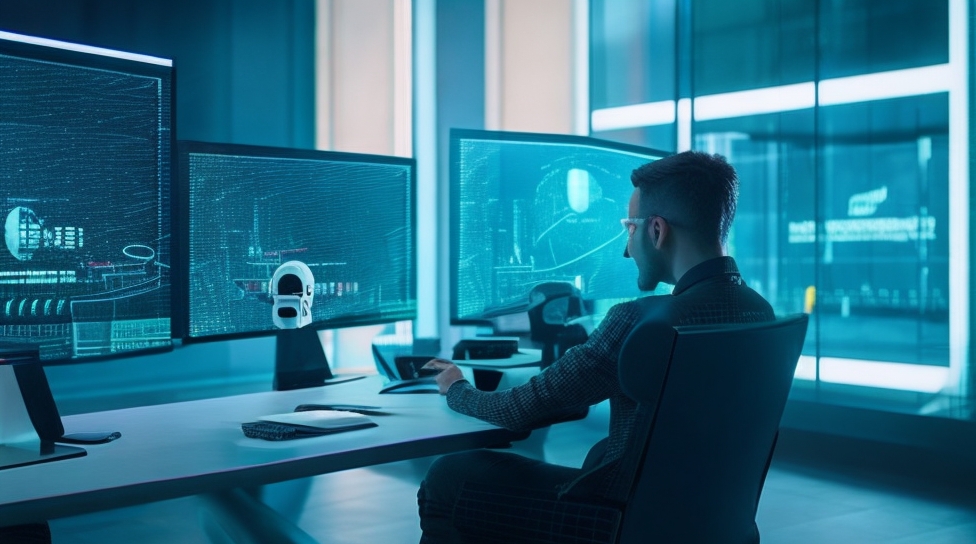
Challenges in Integrating AI and the Metaverse in Freemasonry
As Freemasonry embraces AI and the metaverse, it is essential to address privacy and security concerns. Freemasons must prioritize the protection of personal data and ensure that virtual environments used for immersive learning are secure and safeguarded from unauthorized access. Strong data protection measures and secure platforms should be implemented to maintain the confidentiality of Masonic engagements in the digital realm.
Balancing Tradition with Technological Innovation
One of the challenges in integrating AI and the metaverse in Freemasonry is striking a balance between tradition and technological innovation. It is crucial to ensure that technology augments and supports the core values and principles of the craft without detracting from the authenticity of traditional Masonic practices. Careful consideration must be given to the integration of technology to preserve the essence of Freemasonry while embracing the possibilities offered by AI and the metaverse.
Adapting Masonic Rituals to Modern Technologies
As Freemasonry leverages AI immersive learning, there is a need to adapt Masonic rituals to suit modern technologies. Rituals that have been passed down through generations hold significant cultural and historical value. Adapting them to virtual environments and incorporating AI-powered elements requires a thoughtful approach to maintain their integrity and symbolism while leveraging the potential of technology to enhance the experiences.
Maintaining Human Connections in a Digital World
As technology becomes more immersive and prevalent in Freemasonry, it is crucial to maintain human connections and the essence of face-to-face interactions. While AI immersive learning offers convenience and connectivity, it should never replace the physical gatherings and the bonds formed through personal interactions. Striking a balance between technology-driven learning and the importance of human connections ensures that Freemasonry remains a vibrant and meaningful experience for its members.
The Future Role of Freemasonry in AI Ethics and Responsibility
With the rise of AI technology, ethical considerations become paramount. Freemasonry's emphasis on morality, integrity, and responsible behavior positions it as a significant contributor to AI ethics discussions. Freemasons can play a pivotal role in shaping ethical guidelines and advocating for responsible AI development, ensuring that AI aligns with human values and benefits society as a whole.
Balancing AI Development with Masonic Values
As Freemasonry embraces AI immersive learning, it is essential to balance technological advancements with Masonic values. AI applications should align with the principles of brotherly love, relief, and truth. Freemasons can actively participate in the development and implementation of AI technology, ensuring that it remains in harmony with the values and teachings of the craft.
Potential for Growth of Freemasonry in the Digital Era
The integration of AI immersive learning and the metaverse presents opportunities for the growth of Freemasonry in the digital era. By embracing technology, Freemasonry can appeal to younger generations who are accustomed to technology-driven learning experiences. AI immersive learning can engage, educate, and inspire a new wave of Freemasons, ensuring the continued vitality and relevance of the craft in the digital age.
The Importance of Human Connection in an AI-Dominated World
In an AI-dominated world, Freemasonry can emphasize the importance of human connection and face-to-face interactions. While AI immersive learning offers convenience and connectivity, the bonds formed through personal interactions and the values of brotherhood remain foundational in Freemasonry. Freemasons can champion the power of human connection, fostering meaningful relationships, and creating spaces for personal growth and support in a world increasingly reliant on AI technology.

FAQs
How does AI immersive learning enhance Masonic education?
AI immersive learning enhances Masonic education by offering interactive and experiential learning experiences. Through virtual reality (VR) and augmented reality (AR), Freemasons can engage with rituals, explore historic sites, and connect with Masonic history in a more immersive and meaningful way. AI algorithms personalize the learning journey, providing tailored content and real-time feedback to enhance understanding and retention of Masonic teachings.
What is the impact of AI on Freemasonic traditions?
The integration of AI technology in Freemasonry has the potential to impact traditions. AI algorithms can analyze rituals, suggest enhancements, and create immersive effects during ceremonies. While advancements in technology can enhance the overall experience, it is crucial to ensure that AI aligns with core Masonic values and respects the authenticity of the rituals.
How can AI enhance personal growth in Freemasonry?
AI technology can enable personalized learning journeys for Freemasons. Through behavioral science-based activities and AI-generated feedback, individuals can engage in self-reflection, leadership development, and the cultivation of virtues. AI algorithms curate content tailored to individual needs, track progress, and offer recommendations to support personal growth and development.
How does AI contribute to the preservation of Masonic heritage?
AI immersive learning contributes to the digital preservation of Masonic heritage by digitizing important landmarks and texts. Virtual replicas of historic sites and libraries can be created, ensuring accessibility for future generations. The metaverse offers opportunities for virtual Masonic meetings and global connectivity, fostering the exchange of knowledge and the collaboration among Freemasons worldwide.
What are the challenges in integrating AI and the metaverse in Freemasonry?
Integrating AI and the metaverse in Freemasonry presents challenges such as ensuring privacy and security in the digital age and striking a balance between tradition and technological innovation. Adapting rituals to virtual environments requires careful consideration to preserve their authenticity and symbolism. Additionally, maintaining human connections and face-to-face interactions becomes essential as technology becomes more prevalent in Masonic education.
